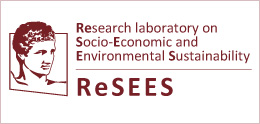“Fraternal Economy of Integral and Sustainable Development” workshop | Pontifical Academy of Social Sciences
On the 2nd and 3rd of February took place the “Fraternal Economy of Integral and Sustainable Development” workshop at the Pontifical Academy of Social Sciences. The core group will meet three times a year, with the initial plan for a three-year cycle, to explore in depth the institutional and ethical basis of a new economic framework fit for the challenges of the 21st century. The objective is an actionable synthesis based on scientific findings, philosophical wisdom, and theological teachings. Research collaborations, academic publications, policy reports, and active policy work with governments are expected outcomes.
Sessions cover topics such as the alignment of business and civil society with the ecological and energy transition (+ Europe’s Green New Deal); corporate law and purpose; the design, role, and limits of values-based investing, ESG investing, and shareholder activism; trade and investment agreements, Investor-State dispute settlements, and environmental sustainability; public development banks and sustainable development; the role of business in rule-making and politics; Intellectual Property Rights; digital surveillance, transparency, privacy, and service regulation (health, education, and commerce); and the regulation of new biotechnologies.
Prof. Phoebe Koundouri was honored to be part of the first meeting of this prestigious group of thought leaders, along with Amina J Mohammed (Deputy Secretary-General of United Nations), Prof. Jeffrey Sachs (President UN SDSN) Prof. Stefano Zamagni (President Pontifical Academy of Social Sciences) H.Em.Cardinal Peter Kodwo Turkson (Chancellor Pontifical Academy of Social Sciences), Rebeca Grynspan (Director General UNCTAD) Carlo Papa (CEO of ENEL Foundation) Prof. Angelo Ricabboni (Director of PRIMA), at Casina at Pio IV in Vatican.
Prof. Koundouri in her capacity as President of the European Association of Environmental and Resource Economists and Chair of the SDSN Global Climate Hub spoke about the urgent need for the development of a data and science driven Sustainability Transition, that is based on rigorous modelling and measurement. “If you can’t measure it, you can’t improve it”! and presented AE4RIA work on developing detailed transformation pathways for the energy and land-use systems, combined with capacity building among all relevant stakeholders that will enable engagement in a just transition that will leave no-one behind.
Photo credits Gabriella Clare Marino










 76 Patission Str.
76 Patission Str. 30 2108203 455
30 2108203 455
